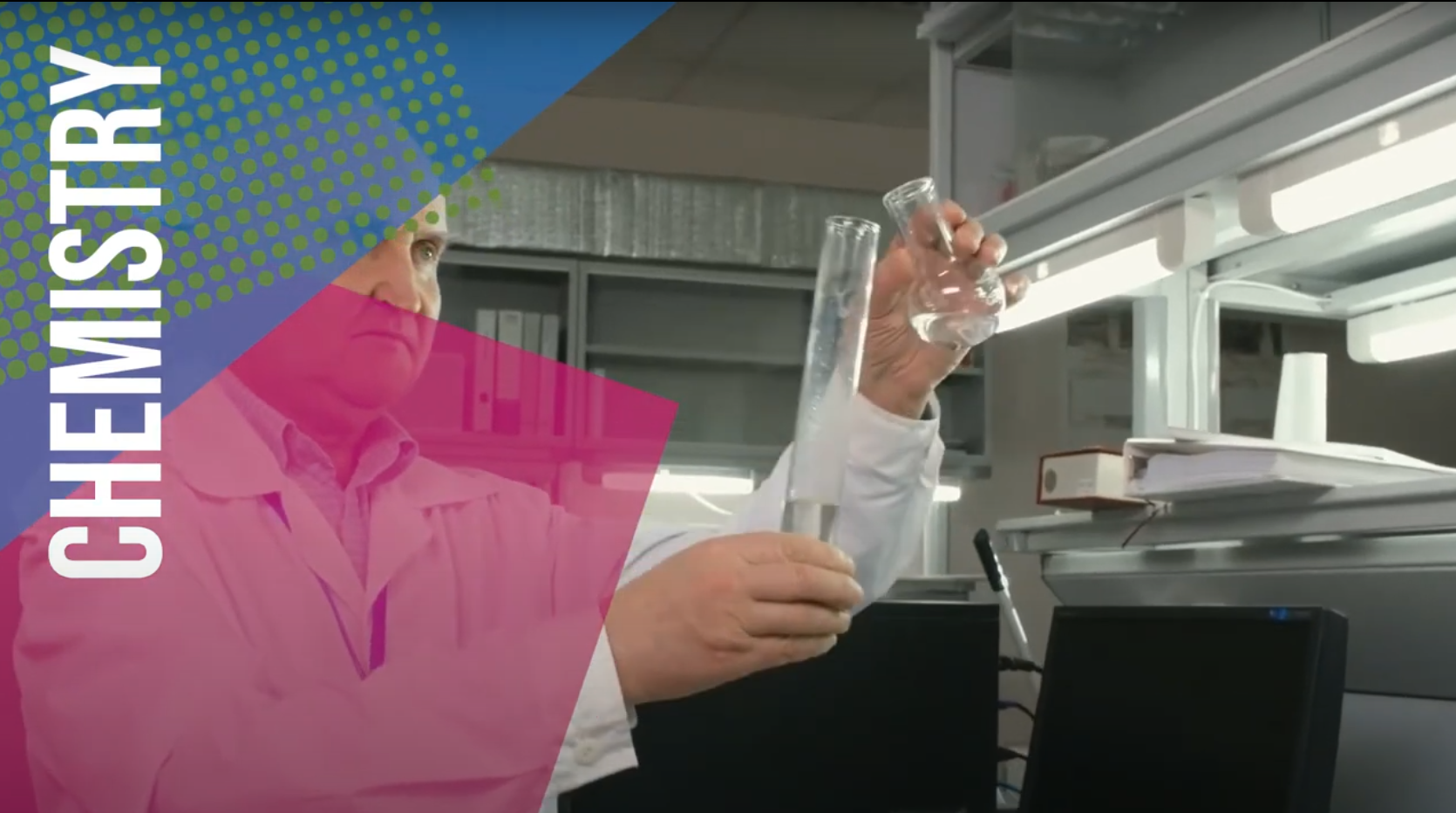Science: Chemistry (A Level)

The chemistry team at Forge Valley has a proven record at A Level. We pride ourselves on providing a supportive environment in which students can engage with the demands of the course and build up the skills they need to succeed in further education.
A good grade in A Level chemistry is a requirement of many science degree courses, including medicine, dentistry and veterinary science and is thought of highly by employers by providing good indicators of academic ability, logical thinking, mathematical skills and conceptual aptitude.
The course is a fascinating exploration of atomic structure, chemical bonding, and reactions of organic and inorganic chemicals and builds on key concepts from GCSE chemistry.
Future Opportunities
Chemistry opens up opportunities to pursue a host of courses at university, including biomedical science, pharmacy, medicine and engineering. These courses are especially attractive to prospective employers as they seek to fill the in-demand areas such as the pharmaceutical industry or non-scientific careers such as finance. The skills provided in chemistry will be useful for many career pathways. For a medical degree, an A Level in chemistry is an absolute requirement.
What are the entry requirements?
Five or more GCSEs Grade 9-4 or equivalent, including English Grade 66 in Combined Science or Grade 6 in Chemistry plus Grade 5 in Maths.
What will I study?
We will be following the AQA Specification. The course content contains the foundations of chemistry before branching out into the 3 disciplines of organic, physical and inorganic chemistry.
Specific subjects include:
- Biochemistry
- Kinetics
- Equilibria
- Energetics.
Running throughout A Level chemistry there will be 12 required practical experiments in which students' skills are tested and recorded. These skills are developed in preparation for this through many other opportunities for investigation work.
How is the course assessed?
Your understanding and learning will be assessed through written exams at the end of Year 12 and/or Year 13. There will be three papers which test your knowledge as well as your practical skills. You will also have your practical abilities assessed by your teacher, which will be reported on your final certificate as the Practical Endorsement for Chemistry.
What is the average class size?
The average class size is between 7 and 15 students. This means there is more dedicated time to make sure we are meeting each individual student's needs.
Are the teachers specialists in the subject area?
Mr So, Mr Barradell and Mrs Dennison are specialists in Chemistry with many years of experience in teaching A-level Chemistry. Mr So and Mrs Dennison have a degree in Chemistry and Mr Barradell has a degree in Chemical Engineering.
How successful have previous students been in this subject?
Over the past couple of years, we have had successful Oxbridge candidates who went on to study Natural Sciences. A lot of students also go on to successfully apply to Russell Group universities to study a wide range of courses, from Medicine to Finance to History. Every student has always achieved a grade in A-level Chemistry.
What other subjects compliment this course?
Biology, Physics and Mathematics compliment Chemistry. Chemistry incorporates mathematical skills, but is also split into Physical Chemistry, which has applications in Physics; and Organic Chemistry, which has numerous links to Biology.
Will studying this subject allow me to go to university?
Having an A-level in Chemistry opens up a huge network of university courses. It is one of the most pre-requisite A-level subjects for science-based degree courses. It also opens up university pathways to highly skilled, wide-ranging specialised careers, such as banking.
What careers can the subject lead to?
The skills provided in Chemistry are essential for a variety of future career choices, such as Medicine. Students that study Chemistry often apply for courses such as Dentistry, Engineering, Nursing, Pharmacy and other medicinal pathways. Students have also pursued a career in research, such as exploring ways to combat climate change and to produce a greener world. The unique skills that Chemistry offers, has enabled students to pursue non-scientific courses, such as History due to their analytical abilities; Geography due to their practical abilities; and Finance and Business due to their mathematical abilities. Apprenticeships at industrial companies have also been a popular option where students can hone their craft in backgrounds such as Manufacturing and Aerospace.
